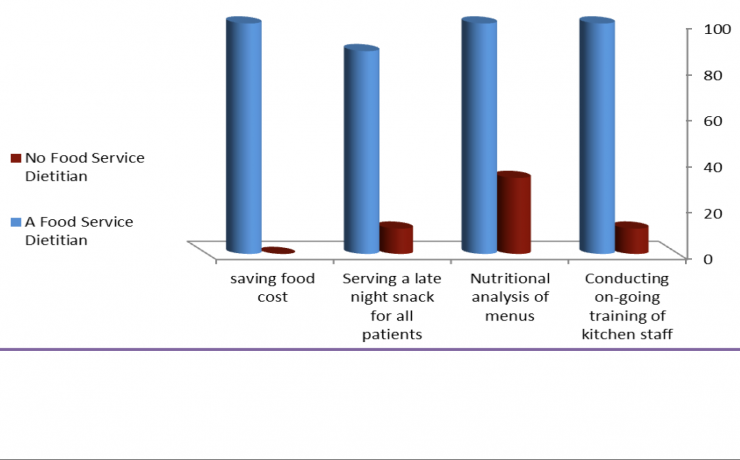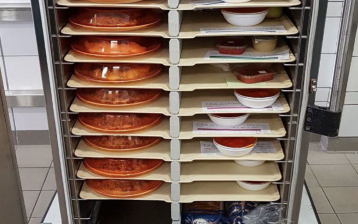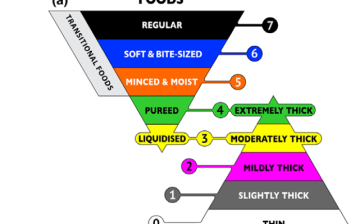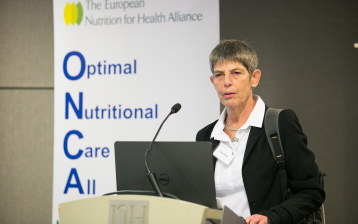
Management of the nutritional sequence in the hospital – the patient at the center
Rationale for the initiative
To ensure patients receive the food they need, we defined a specialized role for dietitians who supervise planning and preparation of the food tailored to patient’s condition. The supervision includes: control of raw materials prior to purchase, storage, preparation, creation of standard recipes, serving of food and monitoring its consumption by the patient, all the while ensuring nutritional quality.
Objectives
To ensure that all patients receive food according to their medical condition and nutritional treatment plan.
We performed a process that included:
- Definition and implementation of a new occupation role of “Food Service Dietitian”.
- A professional comprehensive training course for this role was developed. 30 dietitians carried out the training.
- An intervention study was conducted, in 18 general hospitals, divided into two groups: 9 with a “Food Service Dietitian”, and 9 without a “Food Service Dietitian”.
Results presented in fig 1.

Fig 1: The % of hospitals achieving the implementation of tested parameters:
Outline the steps to be taken
- Provide training courses for 30 additional dietitians within 12 months
- Expand the number of medical institutions employing Food service Dietitians
- Assess the effect of the dietitian’s supervision on the following parameters:
- Number of hospitalization days
- Improvement of food prepared and served according to the patients’ clinical condition
- Degree of patient satisfaction Reduction in food waste
A short abstract describing the good practice in further detail
Subject
Management of the nutritional sequence in the hospital – the patient at the center
Orit Yona MSc, RD, Senior Dietitian, Nutrition in general hospitals and community health care services, Nutrition Department, Ministry of Health, Israel
Rationale
Implementation of a nutritional care plan by food services system in medical institutions has often met with many difficulties, due to the kitchen’s staff lack of knowledge and inability to implement the nutrition care plan. In many cases, patients do not get the food they need to receive according to nutritional care plan given by the dietitian in the department.
Defining a specialized role for dietitians who supervise all planning and preparation of the food is intended to improve the situation and ensure the serving of food that is adapted to the individually nutritional plan of the patients, while concurrently ensuring food safety throughout the food chain operations starting from the supervision and control of raw materials prior to their purchase, storage, manufacturing, creating standard recipes, preservation processes, and the serving of food and monitoring its consumption by the patient.
Methods
- A new occupation role was created, whereby the dietitian supervises all aspects of nutrition and food in medical institutions. Role definition was done by the Department of Nutrition at the Ministry of Health of Israel, and was recently approved by the Civil Service Commission of Israel.
- A professional training course was developed to train dietitians for this role, with all its related tasks. 30 dietitians carried out the training. This training is an essential prerequisite for doing and working in this role. The training included issues of: sanitation, food safety, planning and writing institutional menus and menus according to medical diagnoses, healthy cooking, defining food preparation processes, methods of control in the kitchen and in medical department and wards
- A periodic audit of all general hospitals is performed by the Ministry of Health. Licensing is dependent on the audit outcomes.
The audit team consists of about 25 professionals including medical nursing, pharmacology, social work, psychology, psychiatry, physiotherapy, nutrition and food, nutrition administration, medical records, anesthetics, environmental health, geriatrics, dental care, and security, all of whom assess the achievement of standards in their field using a structured protocol. The purpose of the audit is to improve the quality of care. As part of these audits, we carried out a study, in 18 hospitals, to examine the impact of the food service management dietitian has on the scores of the periodic audits of nutrition and food in each hospital. We assessed this impact using a score which included the following parameters:
- Training of the staff in the food system conducted
- Nutritional analysis of menus performed
- Late-night snacks served to the patients, as is required according the Ministry of Health Medical Administration Directive
Results
The Effect of having a nutrition and food supervisor dietitian on the following parameters :The study was carried out in 18 general hospitals
- Conducting on-going training of kitchen staff:In 50% (9) of the hospitals, there is no food service dietitian, and in these same hospitals, except for one where there is some partial training, there is no training of kitchen staff. In all of the hospitals which do have a food service dietitian, which represent 50% (9) of the hospitals examined, training of kitchen staff is carried out.
- Nutritional analysis of menusIn 27.8% (5) of the hospitals, where there is no food service dietitian, there are no nutrition analyses of the menus, and in the other 3 hospitals without the food service dietitian, these analyses are not carried out fully. In all of the hospitals which do have a food service dietitian, which represent 50% (9) of the hospitals examined, full nutritional analyses of the menus are carried out.
- Serving a night meal for all patientsIn 44% (8) of the hospitals, there is no food service dietitian, and in these same hospitals, late-night snacks are not served to the patients, as required. In the 38% (7) hospitals which do have a food service dietitian, late night snacks are always served as required .In 2 of these hospitals only sometimes and in 1 hospital, not at all.
Conclusions
Statistically significant differences were seen with respect to most aspects of the food service chain, between places where there was a dietitian as a food service manager, and places where this particular role did not exist.
This role allows for the translation of medical and nutritional guidelines into food preparation in the food services system including preparation, transport and serving to the patient.
This role is a connecting link, between all the factors responsible and relevant throughout the entire food chain process.
Therefore, it is important and necessary that each medical institution will have a food service management dietitian who is responsible for all aspects of the institution’s food chain- from warehouse to the patient’s bed.

Picture no. 1: Serving food in personal trays according to nutritional requirements for each patient in the wards

Picture no. 2: Example of personalized food serving
Project team: Orit Yona, Ronit Endevelt
Contact:
Orit Yona MSc, RD, Senior Dietitian, Nutrition in general hospitals and community health care services, Nutrition Department, Ministry of Health, Israel. Tel: +972 508858870 orit.yona@moh.gov.il



